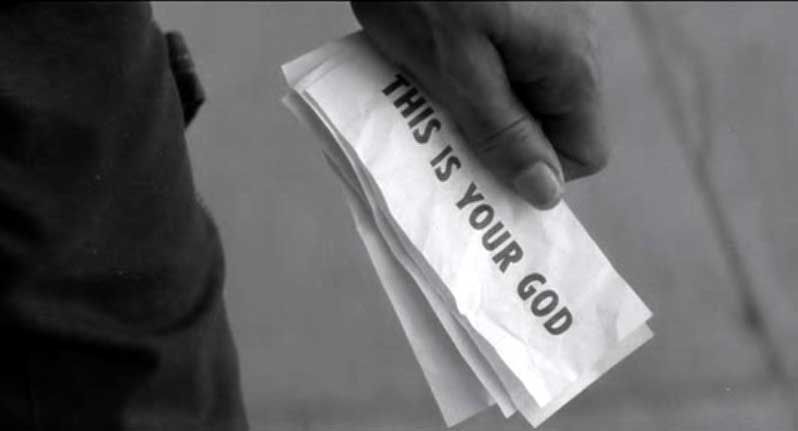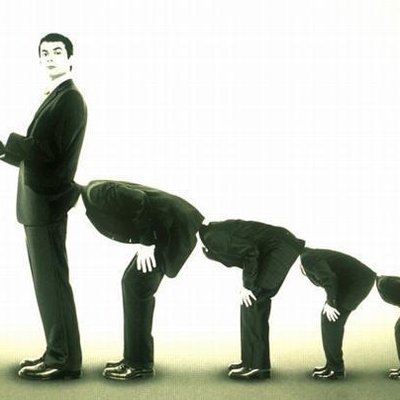There is always more than one angle on any given scene. But there is an elephant in the live music industry taking up the unattended room and gorging on the irony of our desire to save iconic indie venues while being ambivalent about the reason they exist in the first place. And no, that isn’t to keep the doors open on your sentimentalised fragments of youth.
The future of music is disintegrating around the fixation of legacy acts that hold the monopoly of the live music industry while only creaking out of their coffins to effectively catfish us at £50+ a pop on their anniversary (read: crucifixion) tours. At some point, recollection became more compelling than discovery, causing more artists to concuss themselves on the glass ceiling invisibly constructed around indifference of newness.
What does the average music fan care if the current hierarchy of gods and nobodies creates classist unsustainability for your average independent artist? Not a lot. They have no vested interest in the future of artists they’ve never heard of. Ignorance is bliss.
Until revered by dictating tastemakers, they have paid their way into the industry or just got INCREDIBLY lucky; independent artists are up, coming, and going nowhere. That isn’t an insinuation that the music industry has ever been an egalitarian dream; far from it. For some perspective, imagine the current state of the music industry if we ignored the bands on the rosters of Rough Trade, Factory Records and Mute Records because we were too preoccupied with what happened five decades before. That’s precisely where we’re at in 2022.
While the majority raved at how impressive it was for McCartney to headline Glastonbury at 80, in context, it’s a symptom of a far more insidious disorder in the live music industry.
Independent artists are lucky if they break even on tour, let alone break into the industry. Where does this past-decade-sonic-memento fascination end? Do we only let new blood seep into the industry if it sates the affluent artists that need a cheap/free opening support band? Sure, the stamina of an octogenarian icon is impressive. As impressive as the new music that constantly comes our way? Absolutely not.
For what it is worth, I understand the lack of enthusiasm for discovering and supporting independent music. I’m as prone to lapses of jaded disillusion as the next person. Consumer confidence hasn’t been in pits deep as this since the 70s. It plunged with the cognitive bandwidth that gave us the luxury of being able to care about such frivolous things.
Buying tickets to tours just announced doesn’t seem as appealing with the constant reminders that inflation keeps rising at the same rate as the water we have to keep our heads above in this hyper-warped time. Lest we drown in the entropy force-fed by entities that prefer us cowed into fear, division, and isolation. As if a collective of awkwardly amalgamated bodies at gigs that have forgotten to be in a crowd wasn’t enough to make music fans give See Tickets a wide birth.
In the run-up to Glastonbury, the BBC speculated how overwhelmed attendees would be. That same funk and social awkwardness have been floating around every venue since July 2021. If you haven’t noticed it, that’s probably because you’ve started treating gigs like kebabs. In the cold light of sobriety, you’d give it a miss; with your favourite anxiety-quashing poison, you’re numb to the questionable sensory appearance, and that legacy acts give their apathy to their roadies as the heaviest thing to carry.
Something has got to give before the reality of live music plunges deeper into a Black Mirror plot and we are left with an ageing population of icons that we will glue ourselves to before they appear on our screens as holograms on tour and rave about the experience.
But who am I to imply that supporting independent artists should take precedent when every passing day the media etches into our psyches a scarcity complex and teases us further into nihilism? Someone painfully aware of the cognitive dissonance choking the live music industry and desperate for the resurgence of the punk ethos.
How many times have you heard some iteration of “if you are in it for the money, you are in the wrong industry?” as though we should let live music be another death knell of capitalism and its greedy for independent artists to not be out of pocket for all that they contribute to society?
After all the insistence on the value of music and creativity that echoed in lament while it was on pause for 18 months, independent artists gritted their teeth through the cumulative blows and prepared to play their role in society once again. Only to find that getting enough advance tickets sold to leave the promoter inclined to carry on with the event is near impossible.
Independent music has triumphed over the oligarchy before. Just as it did after the economic crisis in 1974 when punk and electronica burst the pop bubble that would have been impenetrable if it weren’t for the likes of Tony Wilson and Geoff Travis. Technically, the industry is more accessible than ever before through the power of social media and software enabling artists to create masterpieces in their bedrooms on a shoestring. But what use is the power of technology if we passively accept its manipulation?
And for anyone thinking that the threat of the world ending is enough justification to mentally nope out of giving a fuck about culture, every generation before us has believed that they will see end times. Fear is a fundamental part of the human experience; the end is always nigh when prophecies of doom are so attractive to our ego-driven minds that believe we will see reality crumble around us.
Turn off the news. Support scenes that allow artists with autonomous voices to thrive. Smash the illusion that enough fame makes a person celestial, and maybe apply some self-awareness to the sycophantic fetishization of a few key figures.
Amelia Vandergast



